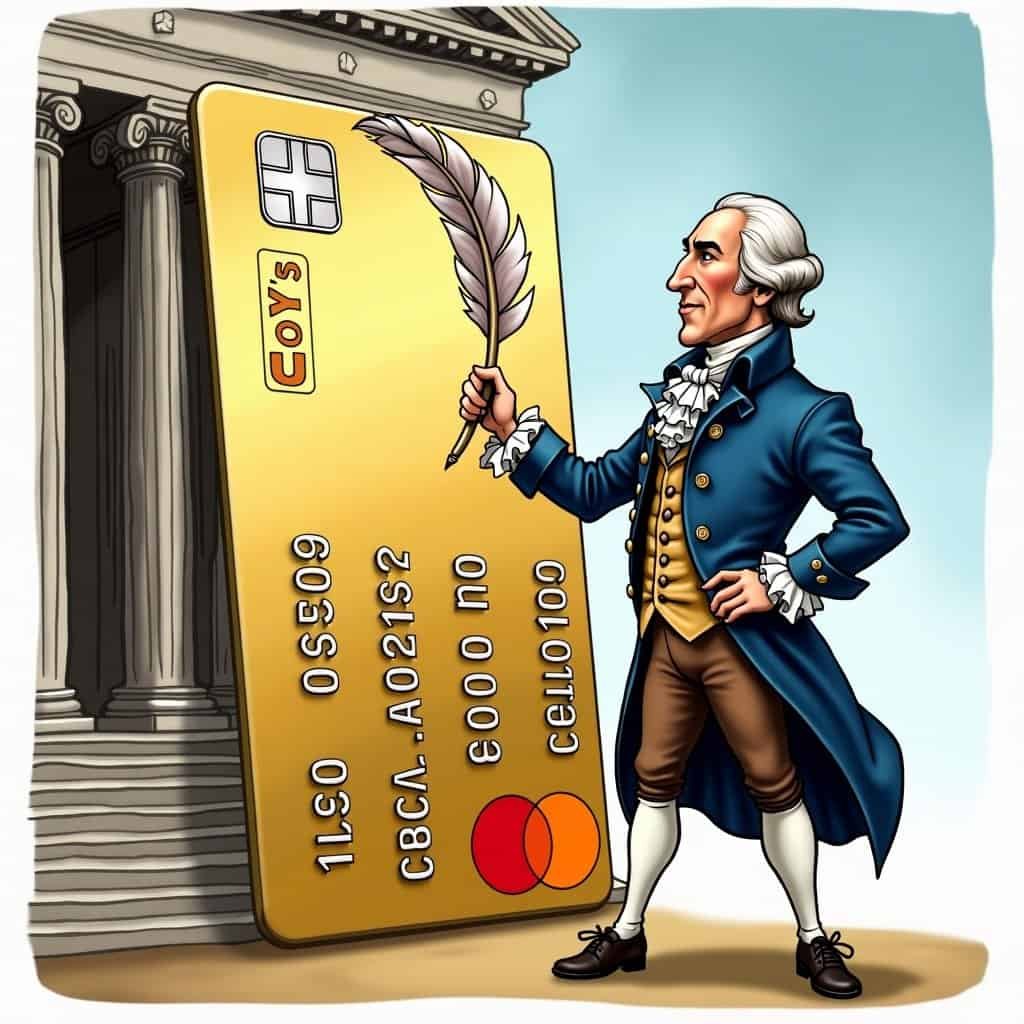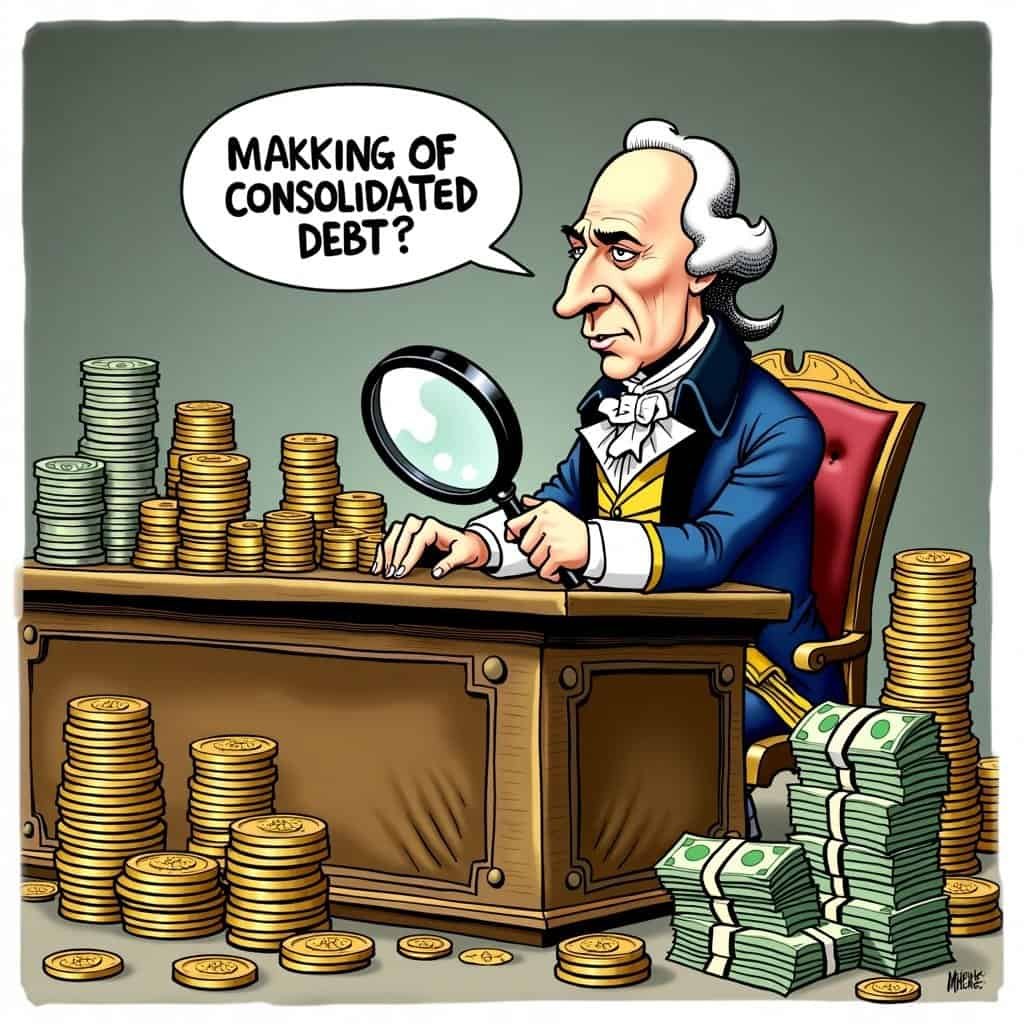Alexander Hamilton—what a guy. One part financial wizard, one part Constitution-crafting revolutionary, and two parts “I told you so” genius. If only he had a Twitter handle; we’d be quoting him left, right, and center (well, mostly right). While his fellow Founders were busy daydreaming about their faces on mountains, Hamilton was sketching out the economic blueprint that would turn the scrappy colonies into the world’s financial powerhouse. And he didn’t need a stack of government handouts to do it.
Let’s give credit where it’s due: Hamilton understood economics in a way that puts modern progressive ideologues to shame. He championed capitalism, not the watered-down “tax it-then-redistribute-it” version some folks call socialism-lite today. His belief in free markets and skepticism of excessive government meddling wouldn’t win him many fans at a modern liberal rally, but that’s their loss. While progressives obsess over class warfare, Hamilton pushed for policies that benefited everyone—because, surprise! Creating wealth works better than taking it from others.
Hamilton’s National Bank: A Stroke of Genius
Hamilton’s economic masterstroke? The establishment of a national bank. Some folks back then thought this level of financial planning was “big government,” but in reality, Hamilton’s bank avoided overtaxing farmers and tradesmen, focusing instead on encouraging private investment. The concept was straightforward: give businesses room to innovate and grow, and the economy will thrive. Compare that to today’s progressive strategy of taxing the wealthy until they send jobs overseas. It’s like choosing between a fruit-bearing tree and chopping it down for a quick snack.
Hamilton’s Economic Principles vs. Modern Approaches
| Hamilton’s Approach | Modern Progressive Approach |
|---|---|
| Encourage private investment | Increase government spending |
| Low taxes to stimulate growth | High taxes on the wealthy |
| Promote domestic manufacturing | Outsource production |
| Limit government intervention | Expand government programs |
Debt Management: A Lesson for Today
Here’s another gem from Hamilton’s playbook: he wasn’t a fan of debt addiction. Sure, he made a case for consolidating wartime debts to build national credit, but his long-term plan was to manage debt, not rely on it for an unsustainable lifestyle. Can you imagine his reaction to our current national spending levels? Hamilton would probably flood Congress with not-so-subtle Post-It Notes saying, “You can’t spend money you don’t have, geniuses!”
Manufacturing Might: A Republican Energy
Buckle up, because it gets even better. Hamilton’s push for manufacturing has Republican energy written all over it. He believed a self-reliant nation should create its own goods and employ its own people. This doesn’t exactly scream “outsourcing-is-awesome,” does it? No wonder conservatives love his ideas; he understood the value of hard work over handouts. Compare this to liberal policies that favor higher tariffs and regulations, which often shut down factories faster than you can say “Green New Deal.”
Tax Philosophy: A Conservative Dream
When it comes to taxes and responsibility, Hamilton’s ideas are a conservative’s dream. Sure, he dabbled with excise taxes (nobody’s perfect), but his low-tax approach to trade strengthened the young republic. A revenue system based on private enterprise rather than the grabby model offered by today’s big-government fans? Absolutely! Hamilton created a financial foundation where prosperity came from innovation and hard work, not from bailouts and bureaucracy.
Empowering Individuals: Hamilton’s Greatest Hit
Perhaps Hamilton’s crowning achievement was showing that the best “economic policy” involves empowering individuals—not governments. He set up a strong, independent financial structure that could handle foreign shocks, boost trade, and encourage private enterprise. Too bad some politicians today would rather print money than trust hardworking Americans to succeed without a bunch of federal assistance programs.
Conclusion: Embracing Hamilton’s Legacy
When some accuse modern conservatives of being penny-pinching fans of supply-side economics, conservative Republicans should wear that label with pride and respond with four powerful words: “We learned from Hamilton.” After all, our Founding Father’s economic framework embodies the values of fiscal responsibility, innovation, and independence—yes, independence, that old-fashioned American ideal liberals never tire of chipping away at with more handouts.
So, next time someone starts singing the praises of Keynesian spending sprees or demands unchecked stimulus to “fix” what healthy private-sector growth could solve, channel the wisdom of Hamilton. And don’t forget to mention, he wrote some of his greatest works by candlelight without needing a dime of government subsidy. Now that’s a Founding Father we can all get behind!
Table of Contents
- Hamilton’s National Bank: A Stroke of Genius
- Debt Management: A Lesson for Today
- Manufacturing Might: A Republican Energy
- Tax Philosophy: A Conservative Dream
- Empowering Individuals: Hamilton’s Greatest Hit
- Conclusion: Embracing Hamilton’s Legacy






